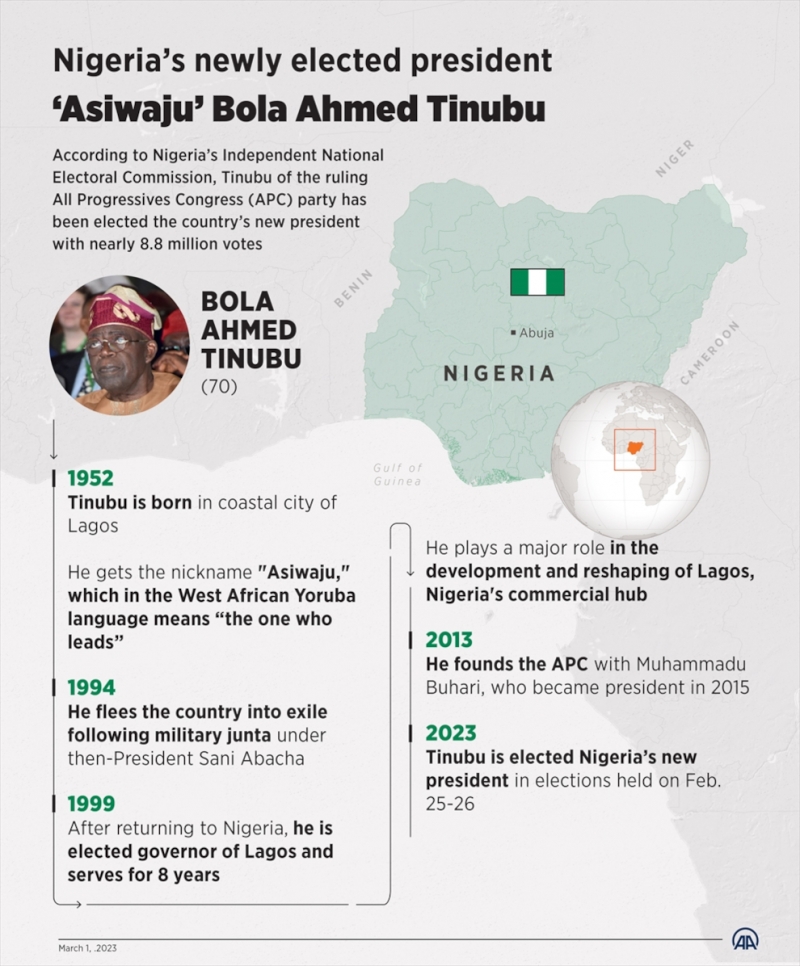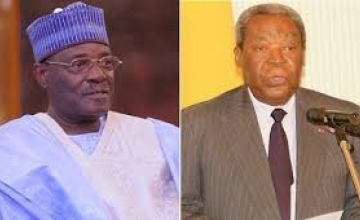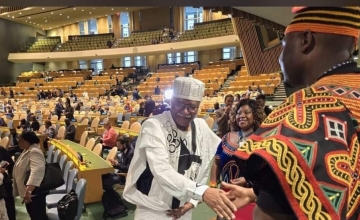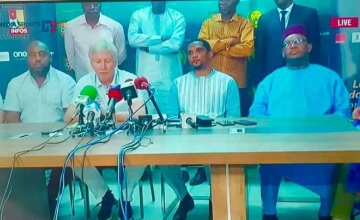
Le candidat du Congrès des progressistes (APC), le parti au pouvoir au Nigeria, Asiwaju Bola Ahmed Tinubu, a remporté, mercredi, l'élection présidentielle.
Le président de la Commission électorale nationale (INEC), Mahmood Yakubu, a indiqué que Tinubu a cumulé 8,7 millions de voix à l’issue d'un scrutin qui s’est déroulé samedi 25 février 2023.
Tinubu a devancé ses principaux rivaux, Atiku Abubakar du « Parti démocratique populaire » (PDP) qui a obtenu 6,9 millions de voix et Peter Obi du « Parti travailliste » (LP) qui a recueilli 6,1 millions de voix.

Dix-huit candidats étaient en lice pour briguer la magistrature suprême au Nigeria, pays le plus peuplé d’Afrique, avec plus de 220 millions d’habitants.
Mardi, les deux principaux partis d'opposition au Nigeria ont appelé à l'annulation du scrutin qui s’est déroulé ce week-end.
Le LP et le PDP ont dénoncé « des fraudes et des manipulations » soulignant que le « scrutin n'a pas été libre, ni équitable, ni transparent », selon la chaîne « France 24 ».
Des attaques contre des centres de collecte des bulletins de vote ont éclaté le jour du scrutin, sur fond d'allégations de fraude.
Le processus électoral s'est compliqué au moment du transfert électronique des résultats, expérimenté pour la première fois au Nigeria, la plupart des agents, qui étaient censés télécharger les résultats depuis les 176 000 bureaux sur une plateforme de l’INEC, n'ont pas réussi à le faire.
AA / Abuja / Adam Abu Pashal
...
Nigeria’s new President-elect Bola Tinubu
Often called the 'godfather' of commercial hub of Lagos, Tinubu served 2 terms as governor of Lagos between 1999 and 2007
LAGOS, Nigeria (AA) - Bola Tinubu, 70, a candidate of the ruling All Progressives Congress party (APC), on Wednesday was declared the winner of Nigeria’s presidential election by Mahmood Yakubu, head of the Independent National Electoral Commission.
Tinubu served two terms as governor of Nigeria’s commercial hub Lagos. He is often referred to as the "godfather" of Lagos, a state he governed between 1999 and 2007.
Prior to becoming governor, he was a senator from 1991 to 1993, before the military suspended the National Assembly and all democratic structures.
Together with other Nigerians, Tinubu formed a coalition to end the military rule which the country saw in various forms between 1985 and 1998.
He later fled the country into exile following a crackdown on pro-democracy campaigners by the military junta.
Tinubu returned in 1998, when political activities began for the return to civilian rule.
- Education
Tinubu started his elementary education in Lagos, southwestern Nigeria, and completed his secondary education at government college, Ibadan. He later traveled to the US for undergraduate studies, obtaining a BS in accounting from Chicago State University.
He worked in the Nigerian office of Mobil Oil before resigning to join politics.
The president-elect is married to Oluremi Tinubu, a senator. Tinubu is wealthy and owns many businesses, including a television station and a newspaper.
He will now succeed President Muhammadu Buhari, who served two terms as president. Buhari’s administration witnessed security woes, economic crunches, and corruption.
The Buhari administration continues its battle with Boko Haram terrorists, who kidnap for ransom as well as economic gain.
Buhari’s decision to replace the country's existing currency notes triggered a serious public outcry.
The incoming president is expected to address some of these challenges.
Although Tinubu and his APC party face accusations of electoral fraud in Saturday's election from the two main opposition candidates, in his acceptance speech he pledged to work with the opposition to develop Nigeria.
AA/Lagos














